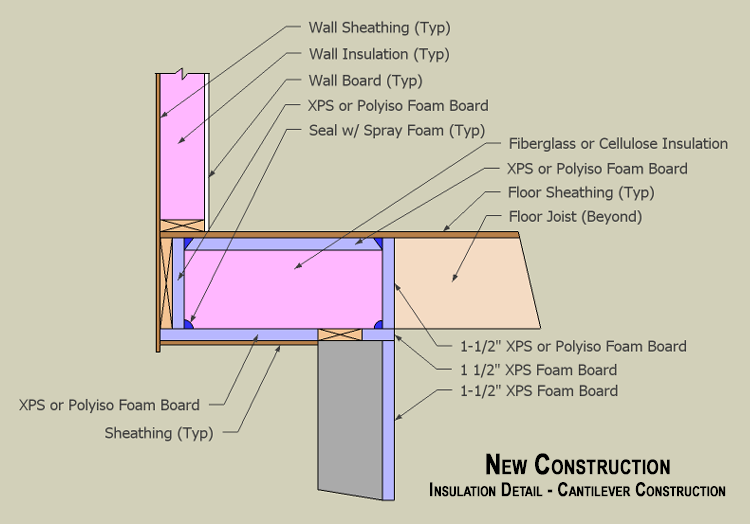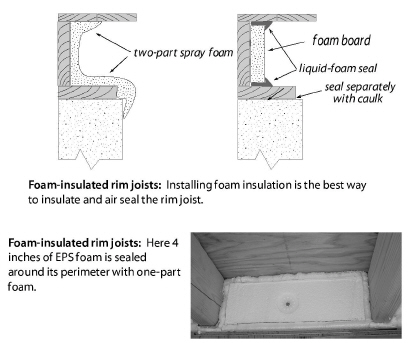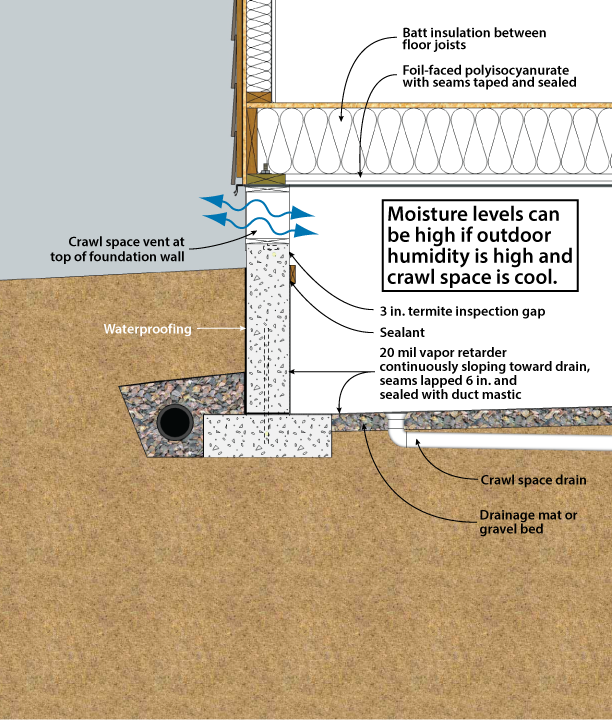With wire fasteners support insulation to be in full contact with the subfloor without being compressed.
Insulation 9 inch cavity between foundation and parallel floor joist.
Fiberglass insulation is usually the best option though handling fiberglass can be dangerous and it is not the most eco friendly option in some cases.
The air space above the 9 1 2 inch insulation in the 12 inch joist cavity will help provide a warm floor inside the cabin.
The floor joists are supported by two beams each a tripled 2 10.
With a 2x10 bay and a nominal inch of closed cell on the subfloor you have about 8 25 of space between the foamed subfloor and bottom side sheathing.
Fiberglass rolls can be placed between joists but the fiberglass itself will need to be cut to fit properly between joists.
Mike put two layers of r 13 unfaced fiberglass batts in the joist cavities ran a 3 4 in.
The instinct is to fill it all with insulation but this makes the ends of the joists even colder and not totally protected from moisture.
Designed for easy handling and use between framing such as studs and joists making it among the best insulation for walls.
To insulate the floor mr.
Fiberglass r 19 batt insulation is about 6 inches thick and is available in 15 inch widths making it the correct size for insulating a two by eight.
The cavities between the floor joists over top of the foundation has been a difficult area to deal with in the building envelope since modern insulation and air vapour has been used in basements.
Gaps between the insulation and the floor can.
The technical answer to your question may differ from what is normally seen or done in many homes.
Compressing a standard density 9 25 r30 batt in there would be the cheapest and may be the right option and would perform at about r28.
The insulation should press right up against the floor between joists.
But what can we do about that narrow cavity between the top of the concrete and the sub floor above.
This leaves a 15 inch cavity between joists.
Better r inch at the compressed density but fewer.
Ensure insulation extends to the outside edge of each joist bay and is in contact with blocking or rim band joist.
This application meets the thermal performance requirements for new construction in the 2009 2012 international energy conservation codes for climate zones 1 2 3 and 4.
Standard fiberglass batts have r values ranging from r 2 9 to r 3 8 for every inch of thickness but high density insulation batts can have r values as high as r 4 3 per inch.
Oriented strand board osb to keep out.
Friction fit insulation between and parallel to the floor joistframing.
It will provide additional insulating value for not too much more than what would be invested in the r30 insulation.
Alternatively you could fill the cavity completely using r 38 faced batt insulation.
This space can measure anywhere from 3 to just 1 inch high.









